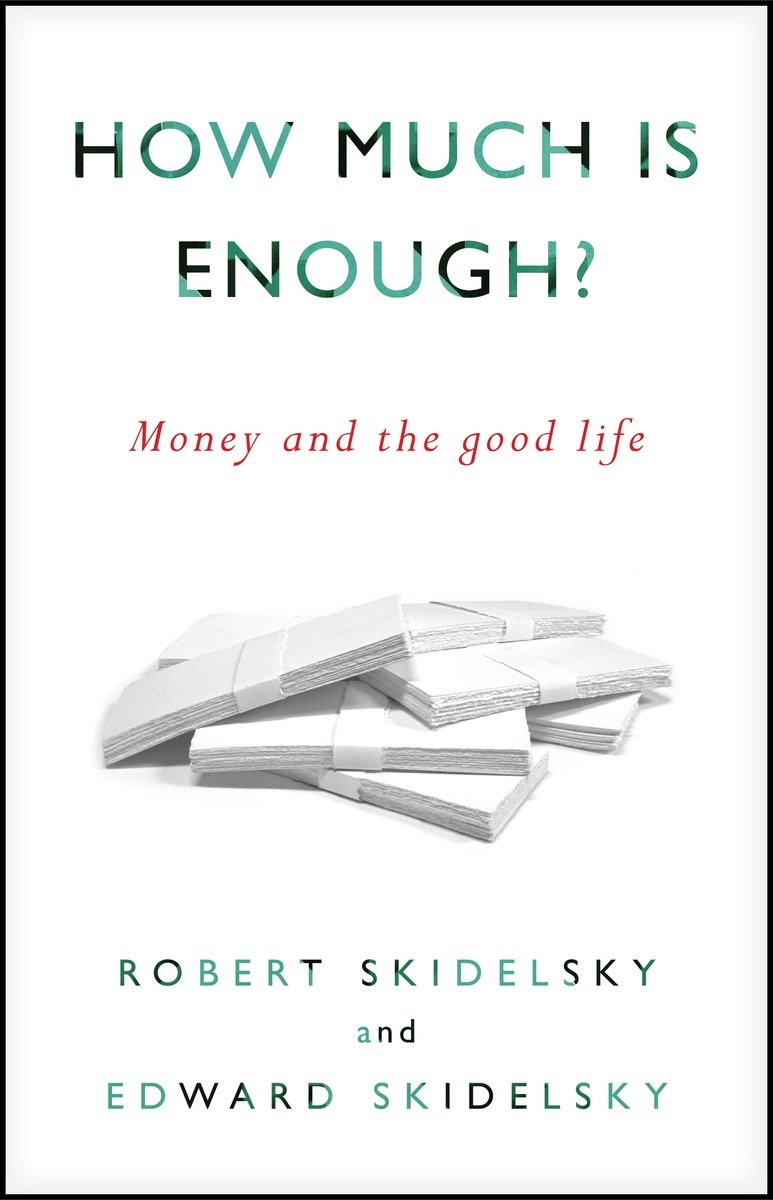Money and the Good Life: How Much is Enough?
24.95 JOD
Please allow 2 – 5 weeks for delivery of this item
Add to Gift RegistryDescription
A provocative and timely call for a moral approach to economics, drawing on philosophers, political theorists, writers, and economists from Aristotle to Marx to Keynes.What constitutes the good life? What is the true value of money? Why do we work such long hours merely to acquire greater wealth? These are some of the questions that many asked themselves when the financial system crashed in 2008. This book tackles such questions head-on. The authors begin with the great economist John Maynard Keynes. In 1930 Keynes predicted that, within a century, per capita income would steadily rise, people’s basic needs would be met, and no one would have to work more than fifteen hours a week. Clearly, he was wrong: though income has increased as he envisioned, our wants have seemingly gone unsatisfied, and we continue to work long hours. The Skidelskys explain why Keynes was mistaken. Then, arguing from the premise that economics is a moral science, they trace the concept of the good life from Aristotle to the present and show how our lives over the last half century have strayed from that ideal. Finally, they issue a call to think anew about what really matters in our lives and how to attain it. How Much Is Enough? is that rarity, a work of deep intelligence and ethical commitment accessible to all readers. It will be lauded, debated, cited, and criticized. It will not be ignored.
Additional information
| Weight | 0.40406 kg |
|---|---|
| Dimensions | 2.5908 × 14.6558 × 22.3774 cm |
| book-author1 | |
| Format | Hardback |
| Language | |
| Pages | 256 |
| Publisher | |
| Year Published | 2012-6-19 |
| Imprint | |
| Publication City/Country | USA |
| ISBN 10 | 1590515072 |
| About The Author | Robert Skidelsky is Emeritus Professor of Political Economy at the University of Warwick. His biography of the economist John Maynard Keynes received numerous prizes, including the Lionel Gelber Prize for International Relations and the Council on Foreign Relations Prize for International Relations. Edward Skidelsky is a lecturer at Exeter University, specializing in aesthetics and moral philosophy. He contributes regularly to the New Statesman, Telegraph, and Prospect on philosophy, religion, and intellectual history. |
| Excerpt From Book | Keynes was deeply ambivalent about capitalist civilization. It was a civilization that unleashed bad motives for the sake of good results. Morality had to be put in cold storage till abundance was achieved, for abundance would make possible a good life for all. Keynes understood that capitalist civilization had, at some level of consciousness, undertaken to license motives previously condemned as “foul” for the sake of future reward. It had struck a bargain with the forces of darkness, in return for which it would secure what earlier ages could only dream of—a world beyond the toil and trouble, violence and injustice of life as it actually is. We have called this bargain“Faustian,” in honor of the famous doctor who sold his soul to the devil in return for knowledge, pleasure, and power. The story starts with the ancient dream of Utopia and then mutates into the historical project of creating a paradise on earth, which has gripped the western imagination for the last three hundred years, and in which the human race is still fitfully engaged. On the way, the idea of moral limits to human ambition, which underpinned all premodern conceptions of the good life, was lost, and dormant energies of creativity and destructiveness were set free in the hope that they would carry mankind to a pinnacle of achievement and mastery of the natural world. At various stages on this journey, the greatest thinkers of the age tried to envisage an end state, a point at which mankind could say “enough is enough,” only to find that the machine it had created to carry them to this point was out of control, a Frankenstein’s monster, which now programmed the game of progress according to its own insane logic. This is the story of how it happened—how we came to be ensnared by the dream of progress without purpose, riches without end. |
Only logged in customers who have purchased this product may leave a review.






Reviews
There are no reviews yet.